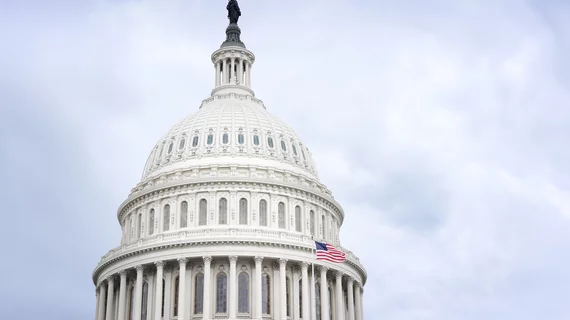Radiologists support bipartisan proposal to quash prior authorization red tape in Medicare Advantage
Radiologists, radiation oncologists and other docs are voicing their support for newly introduced, bipartisan legislation to eliminate prior authorization red tape among Medicare Advantage plans.
Representatives introduced the Improving Seniors’ Timely Access to Care Act in the U.S. House on May 13. Lawmakers noted that while requiring physicians to jump through these hoops can curb unnecessary care, prior authorization often erodes patient-provider interaction while delaying essential medical attention. One recent audit from the Office of the Inspector General found that Medicare Advantage plans ultimately approved 75% of requests they originally denied.
“Inefficiency within the prior authorization process creates unnecessary paperwork, lag time, and hassle for doctors that can delay lifesaving procedures for Hoosiers,” co-sponsor and Indiana Republican Larry Bucshon said in a statement. “This bill eliminates red tape by streamlining and modernizing an outdated program for doctors, allowing them to quickly get their patients the care they need—putting patients over paperwork,” he added later.
Congressional representatives originally introduced the proposal back in 2019, drawing support from the American College of Radiology at the time. ACR confirmed Monday that it still “supports this legislation to reduce the administrative burden of prior authorization on healthcare providers,” a spokesman said. The college joins others backing the bill including the American Medical Association, American Society for Radiation Oncology, and the Medical Group Management Association.
If approved, the act would establish an electronic system and facilitate fast approval for frequently made prior authorization requests. It would also force Medicare Advantage plans to report their denial rates and encourage doc-payer collaboration to ensure these utilization-management programs are based on medical evidence. A recent survey from the American Medical Association found that 83% of physicians believe payers have intensified their use of such roadblocks during the past five years. This problem is hurting patients, too, with 87% of docs saying that prior authorization disrupts continuity of care. Another 30% even claim the practice led to serious adverse events.
“Prior authorization remains a major obstacle to achieving optimal patient care,” AMA President Susan Bailey, MD, said in a statement. “The time delays and administrative burdens continue to undermine healthcare outcomes.”

